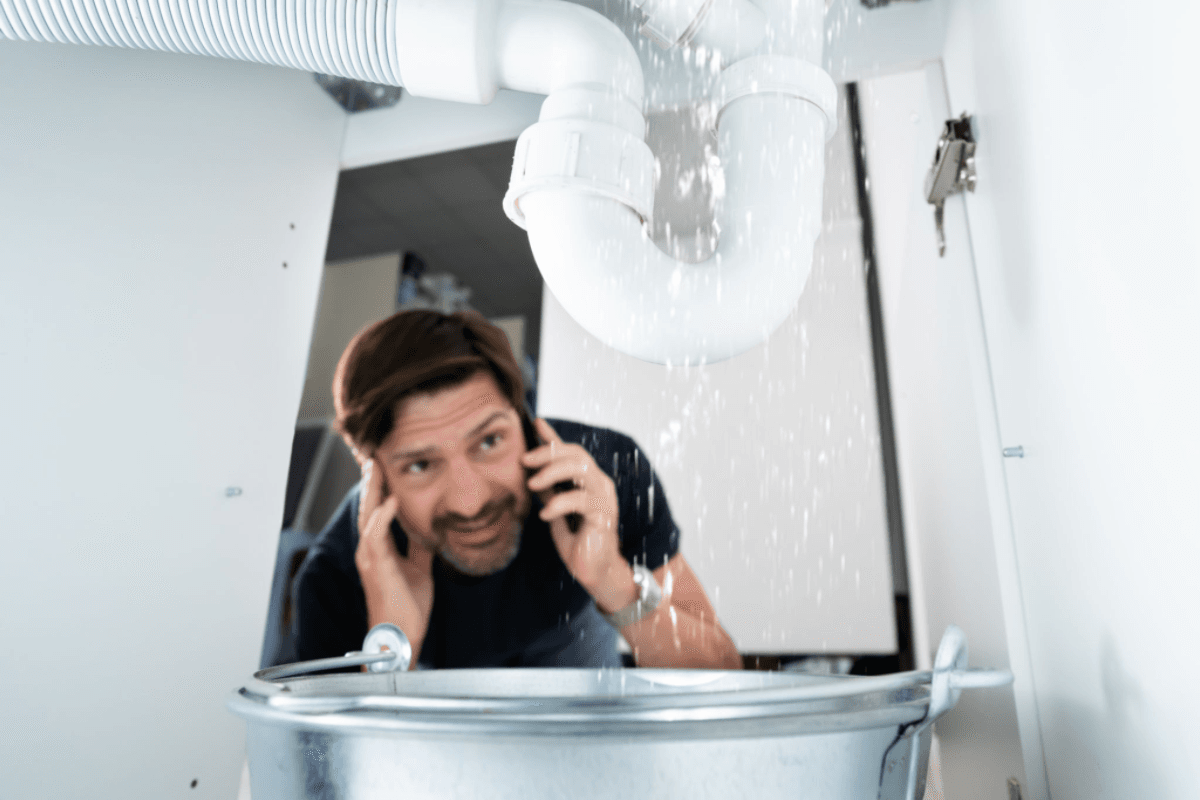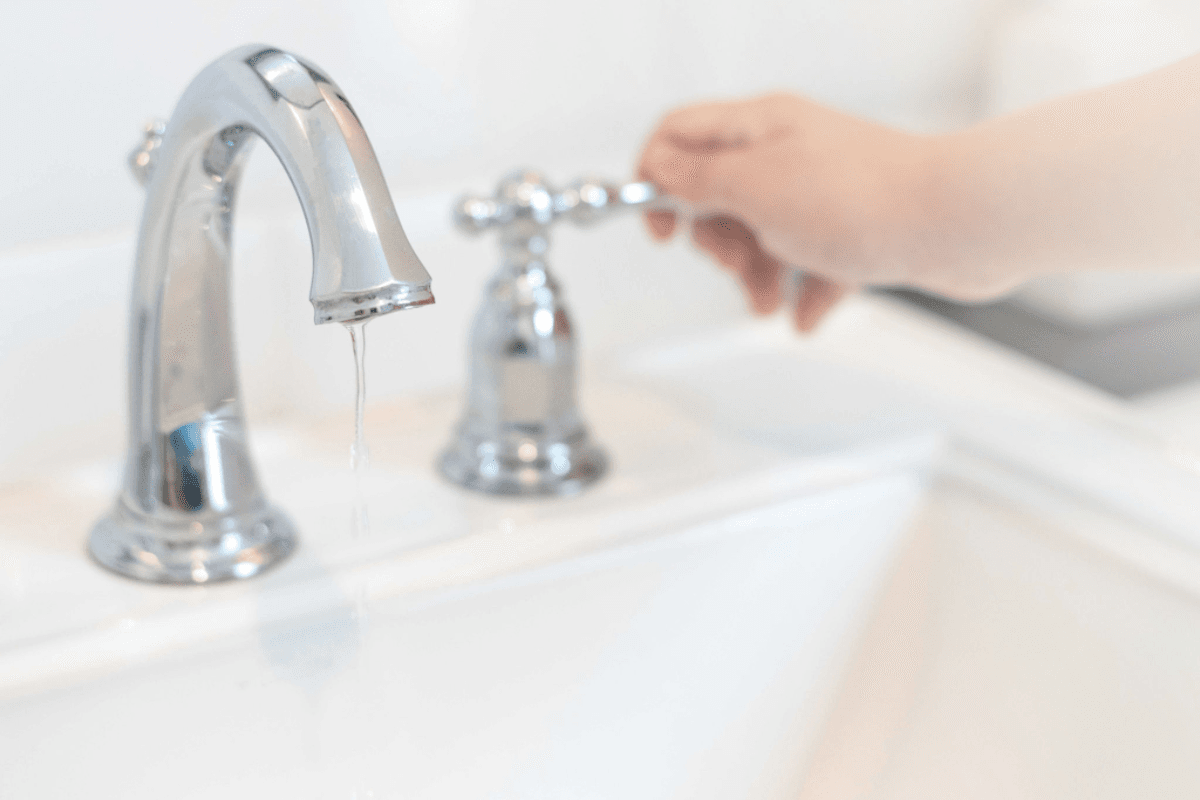Water leaks are a homeowner’s nightmare. They can go unnoticed for extended periods, causing severe damage to your property and skyrocketing water bills. If left unattended, water leaks can lead to structural damage, mold growth, and compromised indoor air quality. Fortunately, early detection and preventive measures can save you from these potential disasters. In this guide, we’ll explore the critical aspects of detecting and preventing water leaks in your home.
Water leaks don’t discriminate based on the age or type of your home. They can occur in older properties with aging plumbing systems or in brand-new constructions with installation errors. No matter the situation, being proactive and informed is key to avoiding costly consequences.
In the following sections, we’ll help you become a vigilant homeowner by discussing the telltale signs of water leaks, differentiating between plumbing and slab leaks, and offering practical tips to prevent leaks before they even start. We’ll also delve into when it’s appropriate to tackle DIY leak repairs and when to seek professional assistance. Finally, we’ll highlight the expertise and services provided by Service by Scott, a family-owned and operated plumbing and maintenance company in Woodville, Texas, with over 30 years of experience. Their 24/7 emergency services and commitment to excellence make them your go-to partner for all your plumbing needs.
So, let’s dive in and learn how to safeguard your home from water leaks and their costly aftermath. Your proactive approach today can save you from significant headaches in the future.

Signs of Water Leaks
Recognizing the signs of water leaks is the first step toward preventing potential damage to your home. Some indicators are subtle, while others are more obvious. By familiarizing yourself with these signs, you can take action before a minor leak turns into a major problem.
Unexplained Water Bills
A sudden increase in your water bill is often an early sign of a hidden leak. If your water consumption has stayed the same, yet you’re seeing a spike in your bills, it’s time to investigate. Keep a close eye on your water expenses and compare them to previous months to catch any discrepancies.
Damp or Discolored Walls and Ceilings
Water leaks often leave a trail of dampness and discoloration on your walls and ceilings. These areas may appear swollen, stained, or have peeling paint. Pay special attention to spots near plumbing fixtures or pipes.
Musty Odors
A musty or mildew-like smell in your home is a clear indication of hidden moisture. Mold and mildew thrive in damp environments, and their odor is often the first sign of their presence. If you detect this scent, it’s time to investigate the source and address it promptly.
Mold and Mildew Growth
Visible mold or mildew growth on walls, ceilings, or other surfaces is a surefire sign of ongoing moisture issues. Mold can pose health risks and should be dealt with immediately. It’s essential to identify the root cause of the moisture, as simply cleaning the mold won’t prevent it from returning.
By being vigilant and taking these signs seriously, you can spot water leaks in their early stages and prevent further damage. In the next section, we’ll delve deeper into specific techniques for detecting leaks within your plumbing system.

Detecting Leaks in Plumbing
When it comes to safeguarding your home against water leaks, understanding the signs of plumbing leaks and knowing how to detect them is crucial. Plumbing leaks can occur in various areas of your home, from faucets to toilets and pipes running behind your walls. In this section, we’ll guide you through the process of identifying and addressing plumbing-related water leaks.
Checking for Dripping Faucets
A dripping faucet may seem like a minor annoyance, but it can waste a significant amount of water over time. To check for a leaking faucet, start by ensuring that the faucet is fully turned off. If you still hear a persistent drip, it’s a clear sign of a leak. In most cases, a worn-out washer or O-ring is the culprit, and these can be easily replaced.
Inspecting Toilet Tank Leaks
Toilets are a common source of water leaks. A leaky toilet tank can waste a substantial amount of water without your knowledge. To determine if your toilet tank is leaking, add a few drops of food coloring to the tank. Wait for about 30 minutes without flushing. If you notice the color seeping into the toilet bowl, it indicates a leak.
Using Water Meter Reading
A practical way to detect water leaks is by monitoring your water meter. Start by turning off all water-using appliances in your home, ensuring that no faucets are running. Take a reading of your water meter and wait for an hour or two without using any water. After this time, recheck the meter. If the reading has changed, even when you haven’t used any water, it’s a strong indication of a hidden leak.
Conducting a Visual Inspection
Regularly inspect exposed plumbing in your home. Check for any signs of moisture or discoloration on pipes, especially at joints and connections. Additionally, examine the areas beneath sinks, around your water heater, and where pipes enter your home. Any visible moisture or water stains are red flags that require immediate attention.
Detecting plumbing leaks early can save you money and prevent extensive water damage to your property. However, some leaks may be more elusive and require specialized techniques to uncover. In the following section, we’ll explore the world of slab leaks and how to identify them.
Detecting Slab Leaks
Slab leaks are a unique and potentially serious type of water leak that can occur beneath the concrete foundation of your home. These leaks are often harder to detect compared to plumbing leaks within your walls or fixtures, making them a source of concern for homeowners. In this section, we’ll dive into the world of slab leaks, discuss their characteristics, and explore methods to identify them.
Understanding Slab Leaks
Slab leaks typically occur in the water lines that run beneath the concrete slab foundation of your home. The causes of these leaks can range from corrosion and abrasion to shifting soil. Due to their concealed location, they can go unnoticed for extended periods, causing structural damage and mold growth.
Signs of Slab Leaks
Detecting a slab leak requires paying attention to specific indicators. If you notice unexplained increases in your water bills and have ruled out leaks in visible plumbing fixtures, it’s time to consider the possibility of a slab leak. Other signs may include warm spots on the floor, the sound of running water when no fixtures are in use, or moisture seeping up through the foundation.
Conducting a Pressure Test
One effective method for confirming the presence of a slab leak is a pressure test. A professional plumber can pressurize the water lines and monitor the pressure drop. A significant drop in pressure indicates a leak within the foundation. This test helps pinpoint the location of the leak, making repairs more precise.
Thermal Imaging for Slab Leak Detection
Thermal imaging technology has become a valuable tool for detecting slab leaks. Infrared cameras can identify variations in temperature caused by water leakage. These cameras create a visual representation of temperature differences, enabling plumbers to locate the exact source of the leak, even when it’s hidden beneath the concrete.
Slab leaks pose unique challenges, and detecting them promptly is essential to prevent significant damage to your home’s foundation. If you suspect a slab leak, it’s advisable to seek the expertise of professionals like Service by Scott, who has the equipment and experience to locate and repair these challenging leaks. In the next section, we’ll explore preventive measures to safeguard your home from water leaks.
Preventing Water Leaks
Preventing water leaks is a proactive approach to safeguarding your home from the potential damage, financial costs, and inconvenience they can cause. The good news is that many water leaks can be prevented through regular maintenance, responsible usage, and timely upgrades. In this section, we will explore practical steps you can take to minimize the risk of water leaks in your home.
Regular Plumbing Maintenance
One of the most effective ways to prevent water leaks is through regular plumbing maintenance. Have a professional plumber inspect your plumbing system annually. They can identify and address minor issues before they escalate into major leaks. This proactive approach can save you money in the long run and extend the lifespan of your plumbing fixtures.
Proper Installation of Appliances
Improperly installed appliances, such as washing machines and dishwashers, can be a common source of water leaks. Ensure that all appliances are installed correctly, with tight and secure connections to water supply lines. Regularly inspect hoses and connections for wear and tear, and replace them if needed. Additionally, consider using water leak detection devices, which can automatically shut off the water supply in case of a leak.
Sealing and Insulating Pipes
Pipes that are exposed to extreme temperatures, whether cold or hot, are more susceptible to leaks. Ensure that your pipes are adequately insulated to protect them from temperature fluctuations. Additionally, seal any gaps or cracks in the walls and floors where pipes run. This prevents moisture from seeping into your home and causing hidden leaks.
Seasonal Plumbing Checklists
Adopting seasonal checklists can help you stay on top of potential water leak issues. In the winter, insulate outdoor pipes to prevent freezing, which can lead to burst pipes. In the spring and fall, check for clogs in gutters and downspouts to prevent water from seeping into your home’s foundation. In the summer, inspect and maintain your irrigation system to prevent leaks in your outdoor water lines.
By incorporating these preventive measures into your home maintenance routine, you can significantly reduce the risk of water leaks. Taking a proactive stance in maintaining your plumbing system and appliances not only saves you money but also provides peace of mind, knowing that you’re protecting your home and loved ones from potential water-related disasters. In the following section, we’ll discuss the considerations when deciding between DIY leak repairs and professional services.

DIY Leak Repairs vs. Professional Services
When you discover a water leak in your home, you may be faced with a decision: should you attempt to fix it yourself or seek the expertise of a professional plumbing service like Service by Scott? In this section, we’ll explore the factors to consider when deciding between DIY leak repairs and professional services to help you make an informed choice.
When to Tackle Small Repairs
Small, easily identifiable leaks from sources like a dripping faucet, a loose pipe connection, or a worn-out washer can often be addressed with a DIY approach. These are typically simple and low-risk repairs that don’t require extensive plumbing knowledge or tools. DIY repairs can save you time and money, provided you’re comfortable with basic plumbing tasks.
The Dangers of DIY on Major Leaks
While DIY repairs can be cost-effective for minor leaks, they may not be suitable for more significant or complex issues. Major leaks, such as those originating from burst pipes, slab leaks, or extensive plumbing system malfunctions, can be challenging and risky to address without professional expertise. Attempting to fix these problems on your own can lead to further damage and costly repairs down the road.
The Expertise of Service by Scott
Service by Scott is a family-owned and operated plumbing and maintenance company in Woodville, Texas, with over 30 years of experience. They have a team of trained professionals with the knowledge, tools, and expertise to tackle any plumbing issue, from small repairs to major overhauls. When you choose to work with Service by Scott, you’re ensuring that your water leak problems are addressed effectively and efficiently, with a focus on long-term solutions.
Affordable Preventative Measures
It’s important to note that professional services are not just for emergencies but also for preventative maintenance. Regular check-ups and maintenance by professionals like Service by Scott can identify potential issues before they become major problems. Investing in preventative services can save you from costly emergency repairs and help maintain the integrity of your plumbing system.
In summary, while DIY repairs can be suitable for minor, easily fixable leaks, it’s essential to recognize the limitations of your skills and when a leak requires professional intervention. Major or complex leaks and routine maintenance are best left to experienced plumbers like those at Service by Scott, who can provide timely and reliable solutions. In the next section, we’ll conclude this guide, emphasizing the importance of timely action and introducing the services offered by Service by Scott.
Conclusion
In the course of this guide, we’ve explored the critical aspects of detecting and preventing water leaks in your home. We’ve discussed the telltale signs of leaks, delved into differentiating between plumbing and slab leaks, and offered practical tips to prevent leaks before they even start. We’ve also explored the decision-making process when it comes to tackling DIY leak repairs or seeking the expertise of professionals.
Water leaks may start small, but their consequences can be significant, both in terms of property damage and financial costs. As a homeowner, being proactive and informed is your best defense against these potential disasters. Early detection and preventive measures can save you from headaches in the future.
Remember, Service by Scott is here to help. With over 30 years of experience, they are your trusted partner in all things plumbing. Whether it’s a minor repair, a major overhaul, or regular maintenance, Service by Scott has the knowledge, tools, and expertise to ensure your plumbing is in top shape.
Don’t wait until a water leak becomes a costly problem. Take action today to safeguard your home and your family. If you suspect a water leak or need plumbing services, don’t hesitate to contact Service by Scott. Their 24/7 emergency services and commitment to excellence make them the go-to solution for all your plumbing needs. Protect your home, and enjoy peace of mind, knowing you have a reliable partner in Service by Scott.
Frequently Asked Questions (FAQs)
How can I tell if I have a water leak?
Look for signs such as unexplained increases in water bills, damp or discolored walls and ceilings, musty odors, and mold or mildew growth. If you suspect a leak, it’s best to consult a professional plumber for a thorough assessment.
Does homeowners’ insurance cover water leaks?
Whether or not a water leak is covered by insurance depends on the specific policy. Some policies cover damage resulting from sudden and accidental leaks, while neglect-related leaks may not be covered. It’s crucial to review your insurance policy and discuss your coverage with your provider.
Can I repair a water leak on my own?
Small, easily identifiable leaks, such as dripping faucets or loose pipe connections, can often be addressed with DIY repairs. However, for more significant or complex leaks, it’s advisable to seek professional assistance to avoid further damage and ensure a long-term solution.
What should I do in case of an emergency water leak?
In the event of a water leak emergency, the first step is to turn off the water supply to the affected area or the entire house if necessary. Then, contact a professional plumbing service like Service by Scott for immediate assistance. They offer 24/7 emergency services to address urgent plumbing issues.
How can Service by Scott help with water leak issues?
Service by Scott is a family-owned and operated plumbing and maintenance company with over 30 years of experience. They offer a wide range of plumbing services, including leak detection, repairs, and preventive maintenance. Their team of skilled professionals is equipped to handle any plumbing issue promptly and efficiently, ensuring the long-term integrity of your plumbing system. Contact Service by Scott for expert solutions and peace of mind in addressing your water leak concerns.

